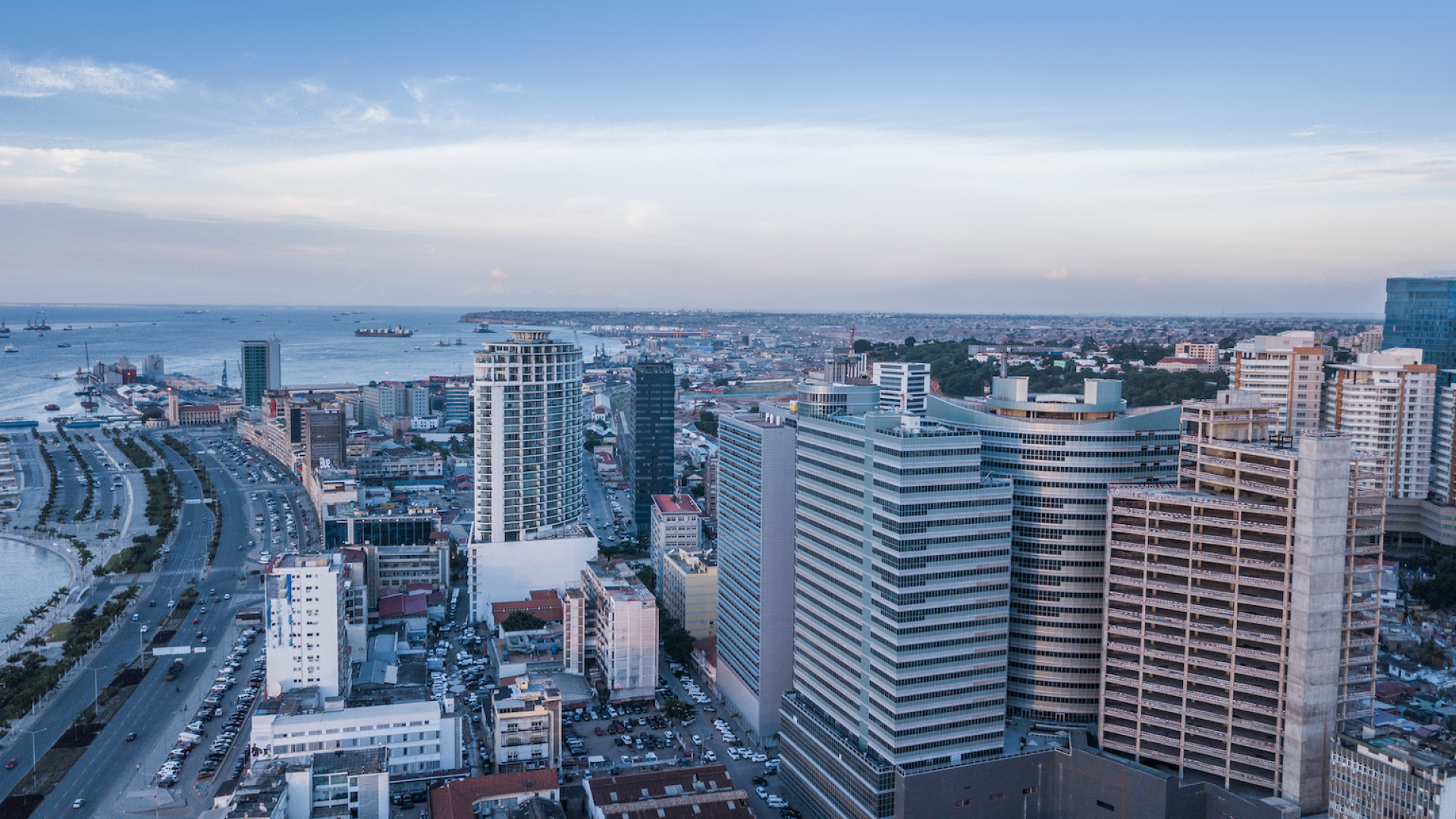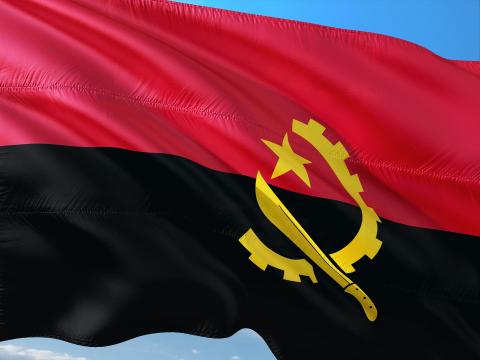
Angola
Overview and role of the EITI
Angola was admitted as an EITI implementing country in June 2022.
As the third largest oil producer in Africa, Angola’s economy relies heavily on oil and gas production, accounting for approximately one-third of the country’s GDP. In 2021, oil accounted for about 84% – or USD 28 billion – of the country’s total export earnings. In addition, Angola ranks as the world's third largest diamond exporter by value, with exports exceeding USD 1.6 billion in 2021.
In August 2020, Angolan President João Manuel Gonçalves Lourenço issued a decree formally expressing the country's intent to join the EITI. This decision was driven by the government's commitment to combat corruption, advance transparency and accountability reform agenda, improve the investment climate and facilitate improved domestic resource mobilisation.
To achieve these objectives, Angola’s EITI work plan includes specific activities focused on the disclosure of contracts and beneficial ownership data, systematic disclosure of extractive sector revenue data and assessing the impact of the energy transition on the country. The government has initiated various regulatory and institutional reforms related to the extractive sector, including the restructuring of the national oil company Sonangol, the national diamond mining company ENDIAMA and the national diamond trading company SODIAM, as well as the establishment of new regulatory institutions such as the National Agency for Petroleum, Gas and Biofuels (ANPG) and the National Agency for Mineral Resources (ANRM), to oversee the allocation of oil, gas and mining rights. The Angola EITI work plan also includes activities aimed at evaluating the effectiveness of these reforms and the transparency and accountability of all state-owned enterprises.
Economic contribution of the extractive industries
- 39%
- to government revenues
- 84%
- to exports
- 31%
- to GDP
- 0.5%
- to employment
Innovations and policy reforms
Angola is using the EITI to promote public debate on the disclosure of revenues and payments data and related legislation reform to overcome taxpayer confidentiality constraints, contract transparency and overall transparency in the extractive sector.
We are increasingly convinced that Angola's participation in the EITI will ensure better governance of its mineral resources, reduce the risks of embezzlement or misappropriation of funds generated by the extractive industries and ensure greater and better cooperation between the government, industry and civil society.
Extractive sector management
Tax and legal framework
Angola imposes a petroleum tax, which is calculated based on the quantity of crude oil or natural gas produced. The country’s Law on the Taxation of Petroleum Activities establishes the tax regime applicable to the sector, with emphasis on the petroleum production tax, petroleum income tax, petroleum transaction tax and surface fee, including contribution to local content to provide training for Angolan nationals. Other tax obligations applicable in the mining sector include income tax, royalties, surface fees and artisanal rates.
Other relevant laws include the Petroleum Activities Law, the general strategy for awarding oil concessions for the period 2019-2025, the Mining Code and the mining sector governance model. Most tax and fee payments made by the extractive sector are channelled directly to the state via the Ministry of Finance (MINFIN), where revenues are transferred to the CGA (General State Account) and subsequently allocated via the OGE (General State Budget), while the Ministry of Mineral Resources, Petroleum and Gas and agencies such as the ANRM and the ANPG are responsible for sector-specific levies.
Since early 2020, the Angolan government has expedited reforms in the extractive sector through the establishment of the National Agency of Petroleum, Gas and Biofuels (ANPG) as National Concessionaire (Granting Authority) and through the establishment of the National Agency of Mineral Resources (ANRM) to regulate the mining sector.
According to MINFIN, there are legal barriers to disclosing information on tax and non-tax payments and revenues disaggregated by taxpayers. Angola government is engaged to proceed with a legal reform to find a sustainable solution to overcome these legal barriers, while exploring other approaches to achieve a degree of transparency and accountability, within the boundaries of the law.
Licenses and contracts
Oil and gas rights are awarded by ANPG through competitive bidding while mining licences are granted by ANRM through public tender or direct negotiations following request by the applicant. The current mining, oil and gas legal framework in Angola does not provide for the public disclosure of contracts and there are legal barriers to disclosing the oil and gas contracts (as stated by Order 409/06 and the Petroleum Activities Law). Exploration and production blocks are published on the National Agency of Petroleum, Gas and Biofuels (ANPG) website, along with the 2019-2025 bidding strategy map. The list of active petroleum and mining licenses is disclosed by the EITI Report.
Angola does not have a publicly accessible mining cadastre. The Ministry of Mineral Resources, Oil and Gas (MIREMPET) is planning to implement an Information System for the Integrated Management of Mineral Resources of Angola (SIGIRMA), which will make it possible to automate the mining licensing and registration processes.
Beneficial ownership
A legislative reform is underway, including a reform of the Law on Preventing and Combating Money Laundering, the Financing of Terrorism and the Proliferation of Weapons of Mass Destruction, to identify beneficial owners. The legislation in force on PEP, the Commercial Companies Law and the National PEP List are also under review.
Under the partnership with the EU Global Facility to foster transparency and efficiency in Angola's financial systems, there are a series of training courses and specific actions related to beneficial ownership, including the implementation of a national registry of beneficial ownership.
Revenue distribution
Angola presently lacks a structured framework for subnational payments and transfers. However, an opportunity exists to develop such a system. Enhanced transparency and robust public discourse concerning the allocation of local revenues will prove pivotal in the establishment of this framework.
EITI implementation
Governance
Angola EITI is administered by the Angola Multi-Stakeholder Group (MSG), also known as the EITI National Coordinating Committee. The MSG is hosted by the Ministry of Mineral Resources, Petroleum and Gas and is currently chaired by Mr. Diamantino Azevedo, Minister of Mineral Resources, Petroleum and Gas.
Timeline
Government announces commitment to join the EITI
Multi-stakeholder group is formed
Candidature application is submitted
Angola joins the EITI
Board decision
2021 EITI Report published
Report
Validation
Angola is yet to undergo Validation. For more information about planned Validations, consult the Validation schedule.







